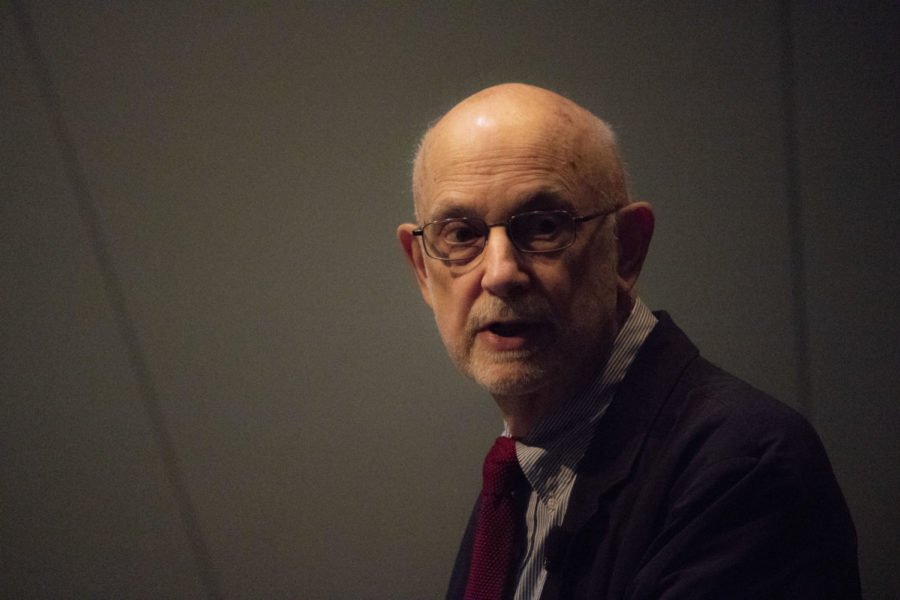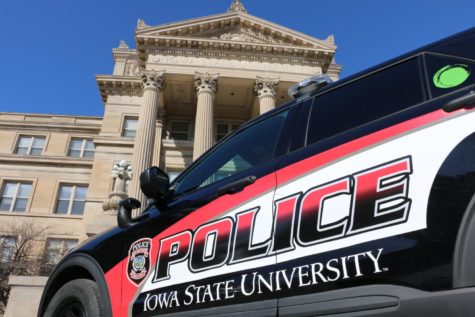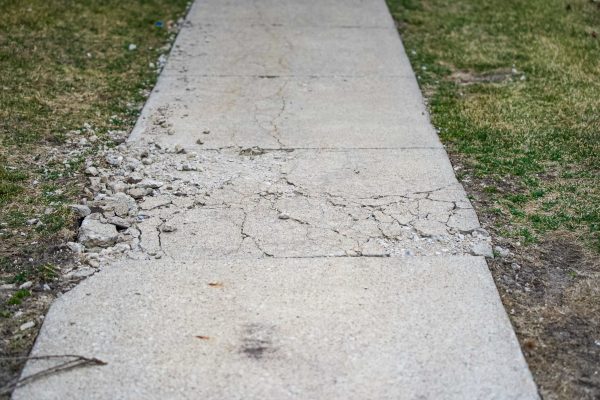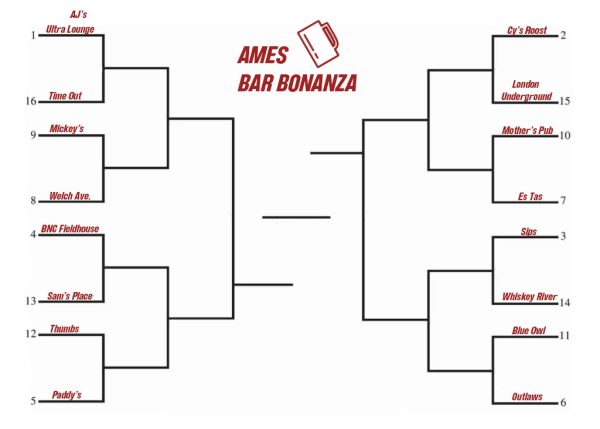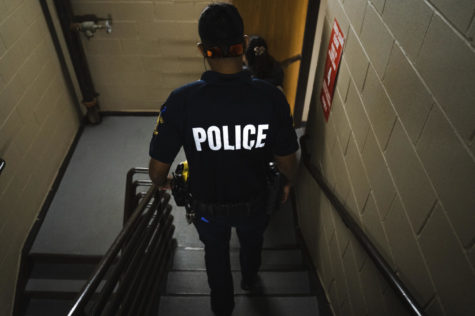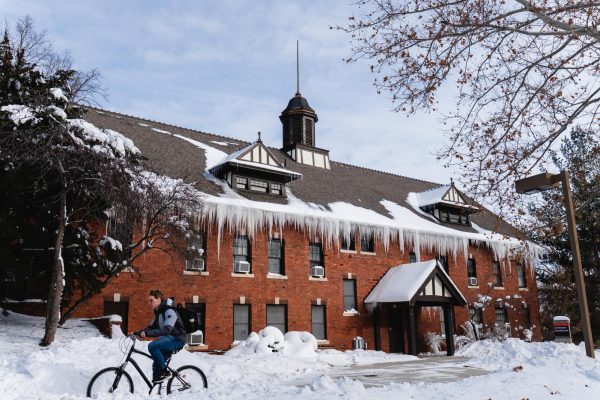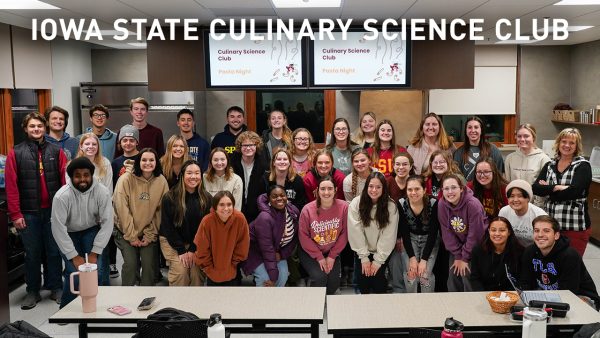Saving American democracy
Jackie Norman/Iowa State Daily
This year’s keynote speaker for the First Amendment Days at Iowa State University, John Whyte, speaks on April 11 in Howe Hall. Whyte was a former director of Constitutional Law for the Government of Saskatchewan and spoke of the state of democracy now with the lecture entitled “Is Democracy Dying?”
April 12, 2018
U.S. citizens are becoming increasingly sceptical about the stability of American democracy. The recent presidential cycle rattled the bases to two major political parties, and a recent Monmouth poll reported 77 percent of Americans think mainstream media outlets report fake news.
John Whyte, a Canadian constitutional law expert, was invited to lecture about whether or not democracy is dying in the U.S.
“Democracy was once thriving,” Whyte said. “It isn’t now, but democracy can and will survive.”
Whyte gave his lecture in Howe Hall to around 150 students. It was part of the First Amendment Days series at ISU. His lecture touched upon issues concerning the philosophy of free speech, hate speech and the sanctity of the political institutions.
Whyte studied at the University of Toronto, Queen’s University and Harvard Law School. In the 1980s he helped draft changes to the Canadian constitution, such as the Charter of Rights and Freedoms in 1982.
On April 11, Whyte observed flaws in the American political system.
“Party fundamentalism is rampant,” Whyte said. “The denigration of opponents is practiced without restraint. [Gerrymandering] destroys the democratic principle of voting.”
He went on to say “single-minded news entities” often remove individuals from realms of “political knowledge.”
He even provided a theoretical “report card” for the U.S. which judged America’s democratic status in four categories: The legitimacy of government elections, respect shown to laws and restrictions upon governing officials, tolerance of dissenting behavior and intolerance for harmful ideologies.
In this thought experiment, a civilization must excel in these areas for democracy to flourish. Likewise, a civilization can’t sustain democracy if they surrender any of these categories.
“I think he had a good message,” said Averi Baudler, freshman in journalism. “If democracy is going to actually work, people need to be selfless.”
Whyte said America’s status in this experiment is vital on the global scale, mostly due to its influence as a world power and our commitment to the first amendment.
“We have to believe in American hope,” Whyte said. “It’s famous world over… maybe people consider naive and unsophisticated but it is wonderful.”
Then he graded the United States.
Rigged elections
“American elections aren’t stolen,” Whyte said, but added that money in politics is still a severe issue. He criticized Citizens United v. FEC and said, “I think that money in politics may well send a message that politics is money.”
However, Whyte still believes citizens here hold a sizeable degree of political power, perhaps more than anywhere else.
Just law
“In some ways America’s governing law is in trouble,” Whyte said. “ [Such as] the Supreme Court being a site of partisan politics. That’s a problem.” But he still believes the American court system is quite democratic in many respects.
Political Tolerance
According to Whyte, this is America’s best-scoring category.
“Suppression of political opponents doesn’t really happen,” Whyte said. “[The opponents] haven’t gone away.”
However, this broad tolerance might sacrifice America’s rating in the final category.
Harmful ideologies
Whyte believes the U.S. has serious problems concerning tribalistic attitudes, particularly manifested in political bigotry against Muslims.
“The United States had a lot of trouble getting over slavery,” Whyte said. “It seems they will also have a hard time getting over Islamophobia.”
More or less, America passes Whyte’s democracy thought experiment. Democracy is dysfunctional and faces threats, but it is still alive in the United States.
That was one of Whyte’s main points: Democracy is in some ways theoretical, and America’s functions as “a form of political authority,” but it has the best potential for a peaceful and just future.
“Democracy is the best hope to answer two moral requirements,” Whyte said. “First: Stability from wars… and regime change. Second: The moral preference of people to be treated with justice and not be subject to terror.”

